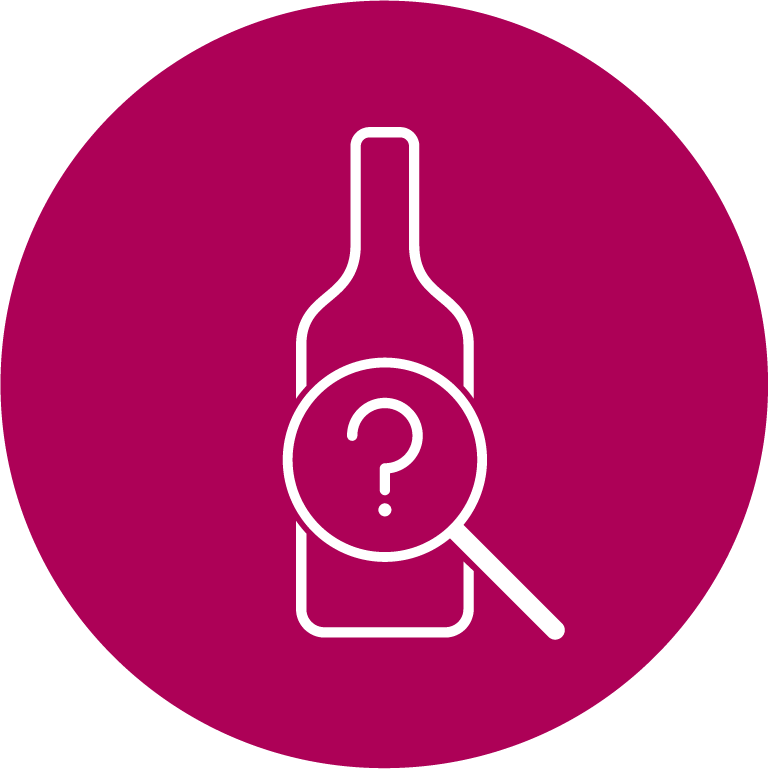The rise of veganism globally (you only need to see how many vegan restaurants are on the High Street these days) has invariably led to much wider interest in what constitute vegan and vegetarian ‘friendly’ products. While it is obvious meat or fish aren’t suitable, it’s a much greyer area with other products…take wine for example.
When I was working for a wine merchant, one of the most popular questions fielded was from customers asking which of our wines were suitable for vegans and vegetarians. Now it is not illogical to presume given that wine is made from grapes and grapes are fruit, that surely all wines are suitable? Unfortunately, that isn’t the case.
Why? It’s all to do with a process called ‘fining’ which is used by many winemakers during the production process.
‘To fine or not to fine’ that is the question….
While some winemakers prefer to leave the wine as nature intended – which may mean sediment at the bottom of the bottle or the wine being slightly cloudy. Others want their wines to look clear and bright and taste pristine. In order to achieve this quickly, they use a process called ‘fining’.
So what is it? Not to get to scientific, ‘fining’ is the addition of an insoluble substance to clarify and stabilise a wine prior to bottling, by binding with the colloid materials (tannins, proteins, colour pigments, phenolics) suspended in the wine and removing them.
Many of the fining substances used are proteins, and each help make specific improvements to the wine, whether to remove harsh tannins, bitter phenolics, improve clarity, colour removal etc. So far so good right?
The problem if you are a vegan is that many of these fining agents, are proteins that are derived from natural sources:
- Albumin (from eggs)
- Gelatine (animal bones)
- Isinglass (fish swim-bladders)
- Casein (Milk)
Bulls blood used to be used, thankfully this practice is no longer allowed!
Did you know? Because Albumin and Casein are allergens they must be declared on food products, which is why you may see: “contains eggs” or ‘contains milk’ on a wine label!
It is not all bad news though, as there are a number of fining agents that aren’t derived from animal products (and such are suitable for vegans and vegetarians), these include:
- Bentonite (a clay)
- PVPP (inorganic plastic!)
- Activated charcoal
- Pea Protein
The interesting thing is that by the nature of the process, the fining agents bind with the colloids and will therefore be removed from the wine along with the substances they are there to remove. In reality therefore they won’t remain in the finished wine in any significant levels after the fining process is completed.
However, the fact these agents were used at all, means many vegans and/or vegetarians consider these wines unsuitable for consumption.
Did you know? Bordeaux was so famous for its use of egg whites during the fining process that a by-product was the creation of the now equally famous canalé pastries made with the leftover egg yolks.
Vegan versus Vegetarian wine
There is a small difference between wines that vegetarians can drink and this is driven by the fact that while vegans will not eat any animal derived products, many vegetarians will drink milk and/or eat eggs. Plus you also have Pescatarians….but let’s not muddy the water further!
Accordingly:
Vegan wines – are those where no additives derived from animal products have been used in the production of the wine.
Vegetarian wines – With the exception of casein and egg albumin (which are allowed), no additives derived from animal products are used in the production of the wine.
However, to further complicate things – although a wine may be unfined, the use of agglomerated corks can also be a potential stumbling block as these can use milk-based glues!
How do I know if a wine is vegan friendly?
Unfortunately, there is no easy way. Although some producers are choosing to include a logo or text on their back labels to denote whether their wines are suitable these are still few and far between.
If you want to be sure, look for natural wines – they won’t have used fining agents.
Alternatively look for wines which state on the label ‘bottled unfined and unfiltered’ – so you are safe in the knowledge no animal proteins have been used.
Study the back label for references to additives: ‘contains eggs’ or ‘contains milk’. These give another clue that wine has been fined with animal products and are therefore not suitable for vegans.
Please bear in mind though, when you find a vegan wine you like, please remember that it doesn’t always follow that it will always be vegan from one vintage to the next. Difficult vintage conditions may mean a winemaker has to use different fining agents than they would usually use. It pays to always check.
Please note – any wines sold in my ‘wine club’ cases will include details on whether they are suitable for vegans and vegetarians, as well as whether they are sustainable or made organically or biodynamically, which hopefully will help a bit.
Anyway, that’s all for “V”, next up on the A-Z of wine “W” is for whole-bunch fermentation.
